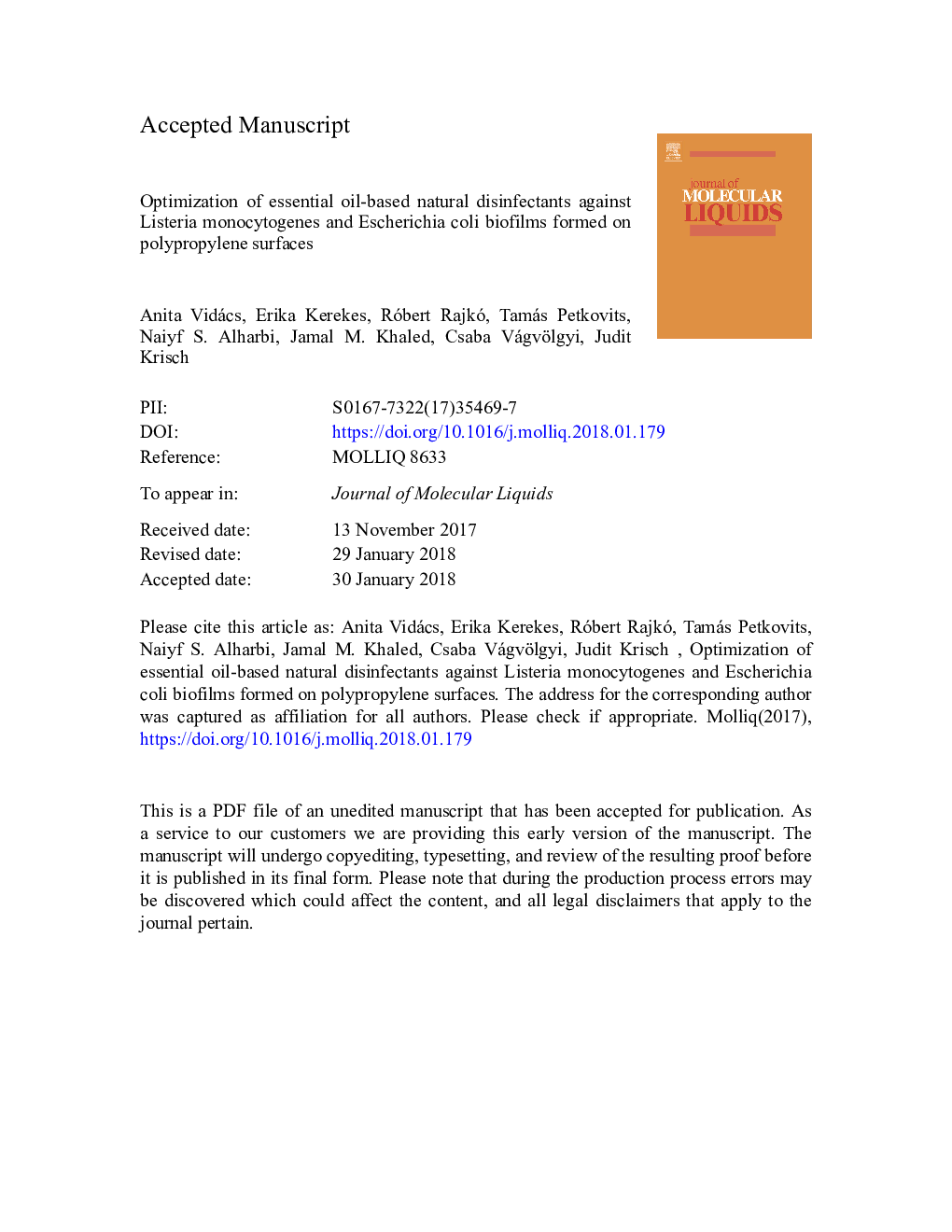| Article ID | Journal | Published Year | Pages | File Type |
|---|---|---|---|---|
| 7842887 | Journal of Molecular Liquids | 2018 | 38 Pages |
Abstract
Polypropylene is frequently used in food contact applications, mainly for packaging or in food boxes to be used in microwave ovens. In this study, the biofilm elimination effect of selected essential oils (cinnamon, marjoram, and thyme) was evaluated against immature and mature biofilms of Escherichia coli and Listeria monocytogenes formed on polypropylene (PP) surfaces. The Response Surface Box-Behnken Design (BBD) with three variables and 17 assays was used to optimize concentration of essential oils (EOs) (1.1-15.8Â mg/mL), disinfection time (10Â min), and level of pH (4.5â7.5) in the EO-based disinfection solutions. The optimized disinfectants were used against 24-, and 168-hour old biofilms formed on PP surfaces, and were successful in elimination of immature and mature biofilms, except cinnamon EO for E. coli where biofilms were destroyed only partially. The disinfectant effect of the EO-based natural solutions was in most cases equivalent or better compared to the per-acetic acid-based chemical sanitizer used in food industry or to sodium hypochlorite.
Related Topics
Physical Sciences and Engineering
Chemistry
Physical and Theoretical Chemistry
Authors
Anita Vidács, Erika Kerekes, Róbert Rajkó, Tamás Petkovits, Naiyf S. Alharbi, Jamal M. Khaled, Csaba Vágvölgyi, Judit Krisch,
